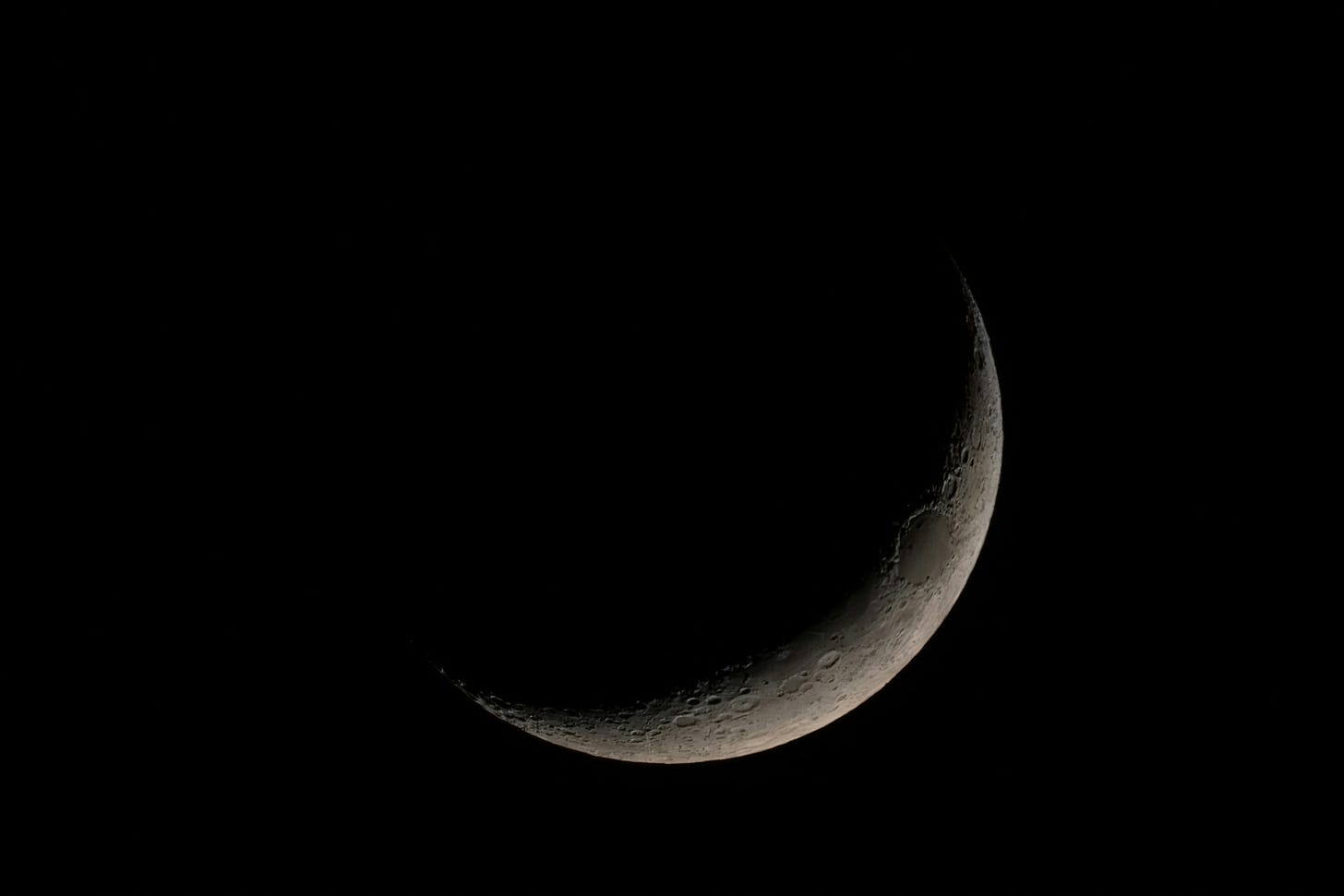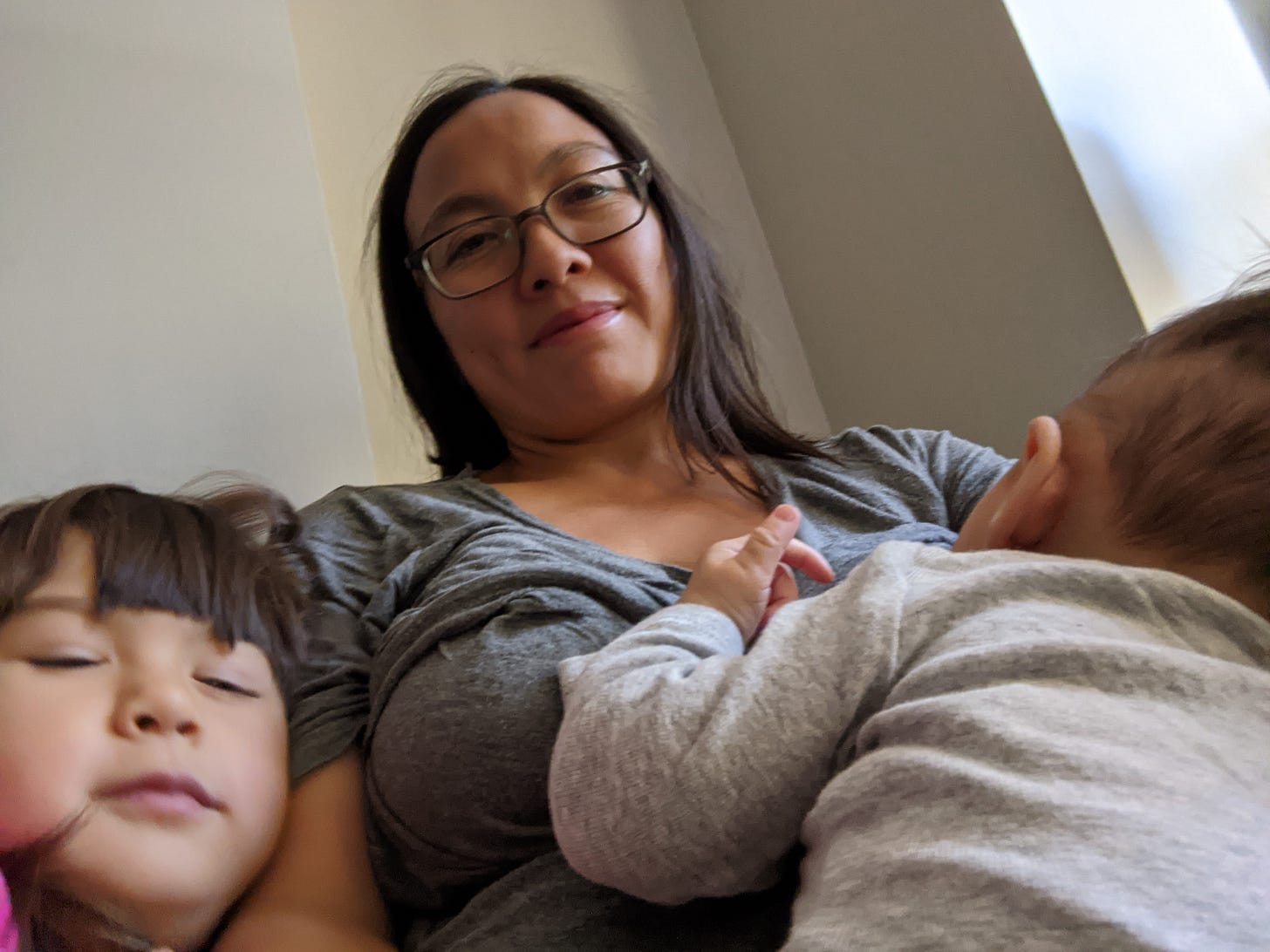Silence: the dark and the light sides
“In not only the physical science, but in the real mental silence, the wisdom dawns. (75)”
― Sri S. Satchidananda, The Yoga Sutras of Pantanjali
Back in 2010-2011, I spent a total of five months at Satchidananda Ashram (Yogaville) in rural Virginia. Today, in the chaos of motherhood, and in the noise of my urban lifestyle, I dream of that type of space and silence. How refreshing it would be to feel my own feelings and hear my own thoughts without interruption (though I know many people might not find that so appealing…)!
Meditation was a cornerstone of the lifestyle at Yogaville, and the teachings embraced silence as a practice that brings wisdom and peace. In the context of yoga practice, this can be true, and…
Silence is a double-edged sword. In the world of meditation, it can be therapeutic, but in the lives (and the history) of women, it has often been toxic. As women going through phases of life, there are so many things we don’t have the space or encouragement to talk about: menarche, menstruation, pregnancy and birth, postpartum life, breastfeeding and weaning, perimenopause, menopause, post menopause, and finally death. That is a list of groundbreaking, intense, life-shaking experiences that deserve celebration, ceremony, or at least some small acknowledgement that they are rites of passage.
Not only are women just beginning to speak more openly on their experiences with these phases of life, they are also asking the important question: how can yoga practice be tailored to support these transitions?
I’d say the first step is to break the silence. It’s okay to talk about our periods, our struggles in pregnancy, our fears around birth, our resistance to (peri)menopause. Silence in meditation brings light, but silence as we move through these seasons of life just envelops us in darkness. Part of breaking the silence is telling our own stories and hearing others’ stories. The other part is finding good resources and support. I’ll share some of my own favorite resources in the section called ‘Life is change.’ For now, though, let’s consider our sister, the moon.
Photo by Krzysztof Kowalik on Unsplash
Saluting the moon
The moon is such a great teacher and muse. For me, in my ultra urban lifestyle here in Chicago, the moon is one part of nature that I can maintain a connection with no matter what part of the city I’m in. The moon is also connected to our menstrual cycles on a deep metaphorical level, even if we don’t have 28-day cycles like the moon (I hardly ever do). The idea is, that we have different modes we function in; one of our superpowers as women is that we can’t (and shouldn’t) only function in one mode; we can’t always be super productive, upbeat, and serving everyone for the duration of each cycle. As the saying goes, “...there’s a time to reap and a time to sow.”
As women, we can find our power in practicing yoga according to our cycles and our seasons of life; as yogis, we find balance in dancing between the dark and the light, the way the moon does. It’s not all about light, enlightenment, and positivity. We need some space and time to hold the darkness that life brings because it is the shadow of the light.
Last month I shared a bit about Surya Namaskar (a.k.a. Sun Salutations) but as we pause for the July new moon, I’d like to offer some guidance on Chandra Namaskar (Moon Salutations). Sun Salutations bring heat and intensity to our practice (fire), while Moon Salutations are more cooling and flowing (water). Having both options gives us more nuanced ways to care for ourselves through our yoga practice!
I find Chandra Namaskar to be very grounding since there is much focus on using the strength of the legs. During the high energy of summer here in the Northern Hemisphere, my body and mind crave a more grounded, calm, and cooling practice. Here are some resources for Moon Salutations, plus a video I’ve made to share with you all:)
Some articles and videos on Chandra Namaskar:
https://yogainternational.com/article/view/a-meditative-moon-salutation/
https://www.ekhartyoga.com/articles/practice/chandra-namaskar-moon-salutations
https://www.artofliving.org/us-en/yoga/poses/moon-salutation
https://www.yogajournal.com/video/moon-shine/
Life is change
Is it just me, or is ‘the change’ as a code word for menopause now sort of an outdated term? Why couldn’t people look (peri)menopause in the face and call it by its name? I think now women are more comfortable just doing this and talking about their experiences, but the fear and resistance are still there. If we had more inspiring and positive role models for these phases, (peri)menopause would come out of its dark, silent cave and speak some deep truths for us.
I’m not saying ‘the change’ is a terrible euphemism, except that it does come out of a sense of embarrassment around the whole issue. It is indeed a change, a huge change; but then again, isn’t all of life full of changes? As I mentioned earlier, all those feminine rights of passage, like menarche, pregnancy, birth, the postnatal period, and perimenopause tend to make us feel alone and isolated only because there isn’t a cultural framework to support these rites of passage. By the time we get to menopause, we’ve already been through so many changes, mostly unacknowledged and definitely not celebrated.
In sharing this newsletter, I’ve encountered so many wise and powerful yoga teachers who’ve spoken and written on the topic of that crossroads between yoga and the phases of womens’ lives.
Will you join me in this adventure of vowing not to bow down to the dictates of a rigid yoga practice? And once we’ve made that commitment, the other side of the coin is: can we find creative, loving ways to mold our yoga practices to serve us as women and mothers? As individuals with complex, fluctuating needs?
This can be both simple and complicated. It’s simple because the bottom line is that we listen to our own bodies as we try different yoga practices, and then we respond by doing what feels right and leaving aside what doesn’t feel right. But it’s also complicated because it’s a path of lifelong learning and we will always have some form of study or research that we need to do to support ourselves in this regard.
So here are some resources to get started:
Courses and resources from Alexandra Pope and Sjane Hugo Wurlitzer, authors of Wild Power:
https://www.redschool.net/
Podcast from the author of Period Power: https://maisiehill.com/podcast/
Dr. Aviva Romm’s work and link to her book, Hormone Intelligence: https://avivaromm.com/book/
Free yoga nidra recordings: https://www.yoganidranetwork.org/nidras/
If you have any resources for mamas going through pregnancy, preparing for birth, or navigating (peri)menopause, please feel free to share! You can include resources that link yoga to these phases of life, or just give a more nurturing, expanded view of these feminine experiences:)
Finding yourself
The longer I wrote for Urban Yoga Mama, the more I realized how dynamic my readers must be. We are all in uniquely different segments of this feminine, motherly path and almost any piece of advice or suggestion I give should therefore be followed up with a clause that begins with, “It depends on…”
So what does it depend on? There are so many factors in our lives and various cycles colliding; yes, women are cyclical beings but it’s not just one cycle, but chaotic, crashing ripples of cycles that all affect each other. This is why I write about menstruation, phases of life, the moon’s phases, and the seasons — these are all like little tremors that can make our yoga practices feel different every time we come to the mat. So, should you practice headstand? It depends on whether you choose to invert when you’re menstruating or perhaps you’re not menstruating but yoga nidra is what you need in the heat of the summer. Should you meditate? It depends on whether your body and mind’s needs for movement have been met. Should you take a deep breath? Even this depends on what you mean by ‘taking a deep breath,’ and how your nervous system responds to longer inhalations and exhalations.
There are so many things to consider in crafting your yoga practice but the main thing is that you design it for you in your current state of being. There might be questions of “am I doing this right,” but a more pertinent question usually is, “does this feel right?” Do you see the difference between fitting into a set of rules about a posture or breathing practice and feeling your way through and practicing discernment about what works for you in any given moment?
In this way, you access your inner teacher, who knows way more about you than any external teacher. Of course these feminine changes we go through have a physical, medical dimension and it’s always a good idea to seek medical support when you need it. But when I’m talking about that inner teacher, what I’m hoping to shed light on is that there’s an emotional and spiritual dimension woven through the physical part, and that’s what I hope we can connect with here.
My recent change
me and my kids back in 2020
About two weeks ago, I finally weaned my son from breastfeeding. He just turned 4 years old. I also nursed his sister for 4 years, which brings me to a total of 8 years of breastfeeding! I had heard that weaning can bring on the blues or depression, but I didn’t expect that at all after such a gradual weaning! After a couple of vaguely anxious weeks where I alternated between feeling blue and feeling overwhelmed, it occurred to me that this might be a sort of post-weaning depression.
Or perhaps it could be some grief around my mom’s death (she passed last year). Or could I be entering perimenopause myself? Do you see how developing a highly tuned sense of where we are at — physically, mentally, and emotionally — is so important? If my current state is due to weaning or grieving my mom’s death, I might need to turn to yogic strategies that aren’t just for women, but for people who are navigating difficult emotional transitions that bring up feelings like depression and grief.
What changes are you living through? Do you use your yoga practice to stay balanced through those transitions? Or do you have other means of staying centered? Or maybe you’re at a total loss, and just beginning to find words for your current struggle? I wish you well, and hope you’ve found some helpful things in this post.
Happy eve of the new moon!
Thank you for supporting me by reading Urban Yoga Mama. If you know anyone else who would appreciate this post, please share the love!
Also, if you know someone who just generally would love to learn more about that lovely intersection between yoga and motherhood, please recommend Urban Yoga Mama to them:)




